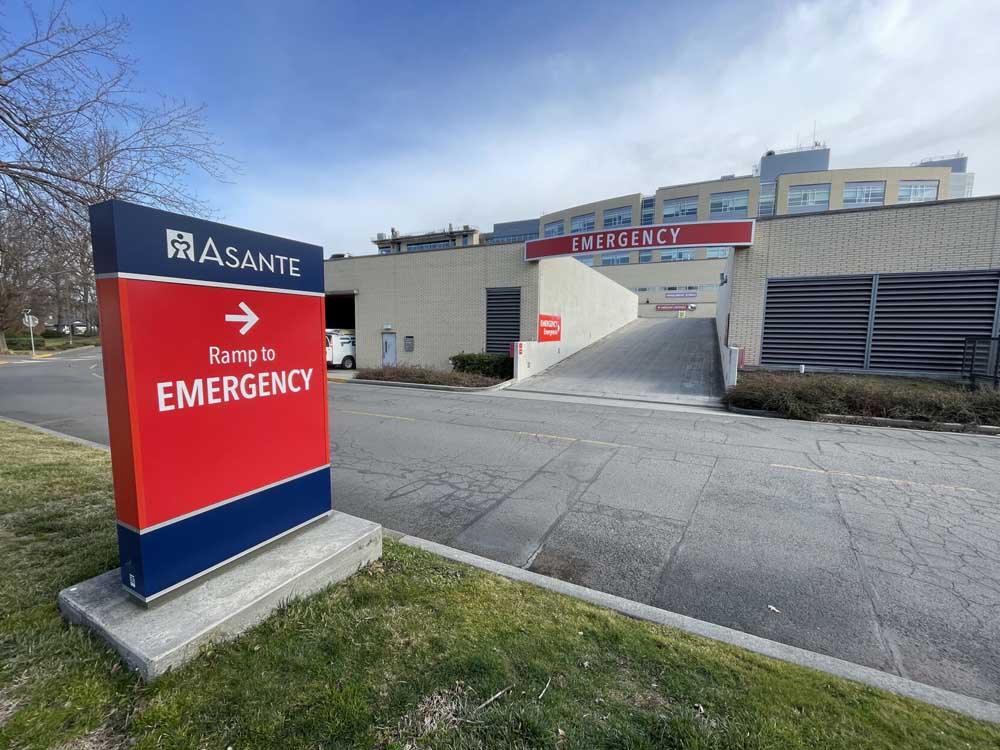Medford law firms have 3 dozen clients linked to nurse’s alleged ‘drug diversion’ at Asante
Published 3:00 pm Tuesday, February 13, 2024

- Medford law firms report being contacted by dozens of former patients, or families of patients, related to an ongoing investigation into drug diversion that resulted in patient harm.
MEDFORD — Local law firms report at least three dozen new clients who are former patients — or family members of patients — believed to have been harmed by drug diversion allegedly committed by a nurse at Asante Rogue Regional Medical Center in Medford.
Trending
The drug diversion allegations are part of an ongoing investigation reported to the Medford Police Department in early December. Police and Asante officials have provided few details about the investigation, which the Rogue Valley Times first reported on Dec. 31.
Multiple sources interviewed by the Times said they were contacted by Asante as early as November. The hospital told them infections that led to their family member’s death may have been caused by a nurse swapping out prescription fentanyl for non-sterile tap water.
At least four local law firms contacted by the Times this week said they are representing a total of at least three dozen potential clients in cases against the hospital.
Trending
David deVilleneuve, of Shlesinger & deVilleneuve Attorneys P.C. in Medford, said his office has at least two clients who contracted infections during their stays in the intensive care unit of the hospital but survived.
He said Asante contacted the clients this week and asked them to take blood tests, likely to determine the presence of markers for a tap water infection. One signed up with deVilleneuve’s firm only after Asante called them about the blood test, while the other had already signed up with the firm when Asante called and thereby validated the decision to seek legal services.
A longtime personal injury attorney, deVilleneuve said his firm had assembled a legal team solely dedicated to the Asante drug diversion claims. The team will be made up of deVilleneuve, another lawyer and three legal assistants.
DeVilleneuve said it was difficult to assess how many clients his firm would ultimately represent, from former patients who have been contacted by Asante and told they were affected, to others not yet contacted but whose medical records meet the same criteria “based on what we know of the case.”
“We probably have 25 that were interested in delving in to see if they were affected,” deVilleneuve said. “Officially, we’ve signed up a dozen, or closer to 15, with another 10 we are wanting to look at records for.”
At least three other local firms are representing former patients or patients’ families in the drug diversion case.
Idiart Law Group, a Medford firm, is representing “at least five clients” against Asante, with additional calls coming in.
A spokesperson at the firm confirmed a “range of scenarios” — including that they were representing families of patients who had died, as well as patients who had contracted infections but survived. The Idiart clientele also includes individuals contacted by Asante, which told them they were affected, and others who had not yet been notified by the hospital but whose medical records fit the criteria.
The firm plans to file its initial round of cases against Asante soon.
David Linthorst, of Andersen & Lindhorst P.C. in Medford, said his firm was representing four clients. Two had been contacted by the hospital; the other two had not, but their experiences closely resemble those of other alleged victims in the case.
Linthorst said his firm was actively reviewing medical records for clients who “basically experienced the same thing as was described by Asante in the calls they were making.” He said it was notable that the hospital, which largely has been silent since the investigation was announced — and which declined to comment Thursday — had reached out to patients.
“What’s different about this case is, they were making those calls and saying, ‘Something happened to you,’ which is something I haven’t seen before,” Linthorst said, “but it also came pretty late in the game.”
Black, Chapman, Petersen & Stevens, which has a Medford office, posted a photo of the hospital on social media with a phone number. The firm did not immediately return calls seeking comment but has reported to other media outlets that it was representing a number of former patients in the drug diversion case.
Cases being reviewed by various firms, deVilleneuve pointed out, potentially indicate a longer timeline for the infections than early reports suggested. Recent data obtained by the Times show a spike in central line infections in 2022 and 2023 — 15 and 14 across the two years, compared to one or two most years.
Of families interviewed by the Times, deaths alleged to be related to the drug diversion case have been verified as occurring between November 2022 and July 2023, but deVilleneuve said the timeline appears to go back even further, with possible cases dating back to February and June 2022 that seem to match other verified cases.
DeVilleneuve said it was upsetting to think of patients “suffering severe pain who were not getting any medication.”
“It breaks my heart. … There would have been no doubt in anyone’s mind that these people needed this pain medication — whether it was for major surgery or having been in a horrible accident,” he said.
“At the very least, a nurse who diverted pain medication would know that they were making people suffer severe pain that they otherwise would not have. I believe most nurses would know that if you put unsanitized tap water into a patient’s IV, especially a patient with other severe medical conditions, that patient could suffer a severe bacterial blood infection that could lead to death.”









